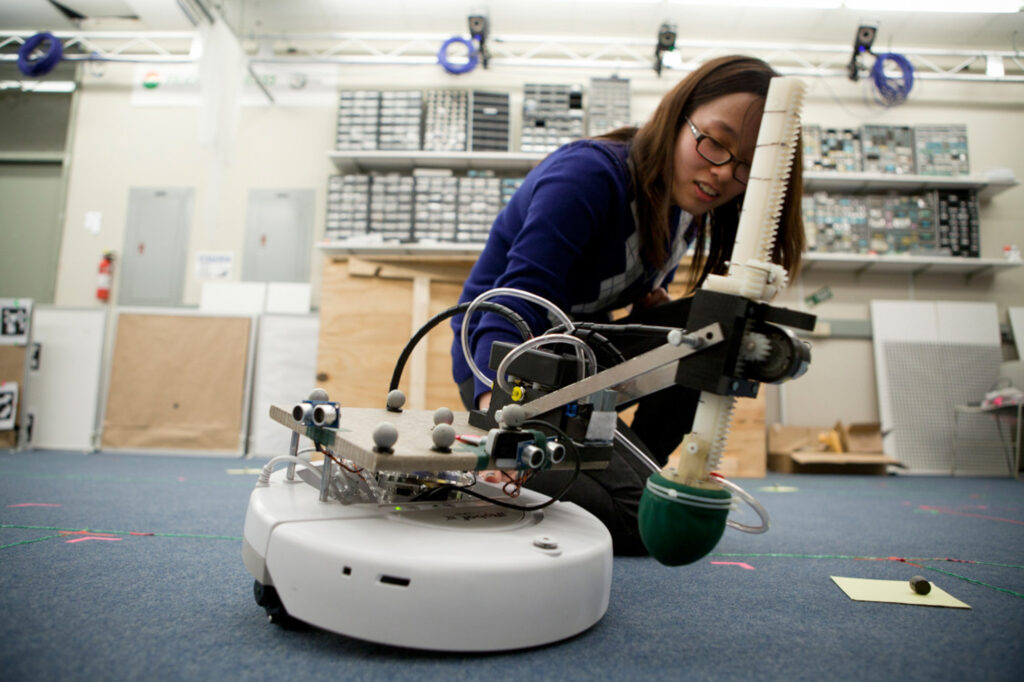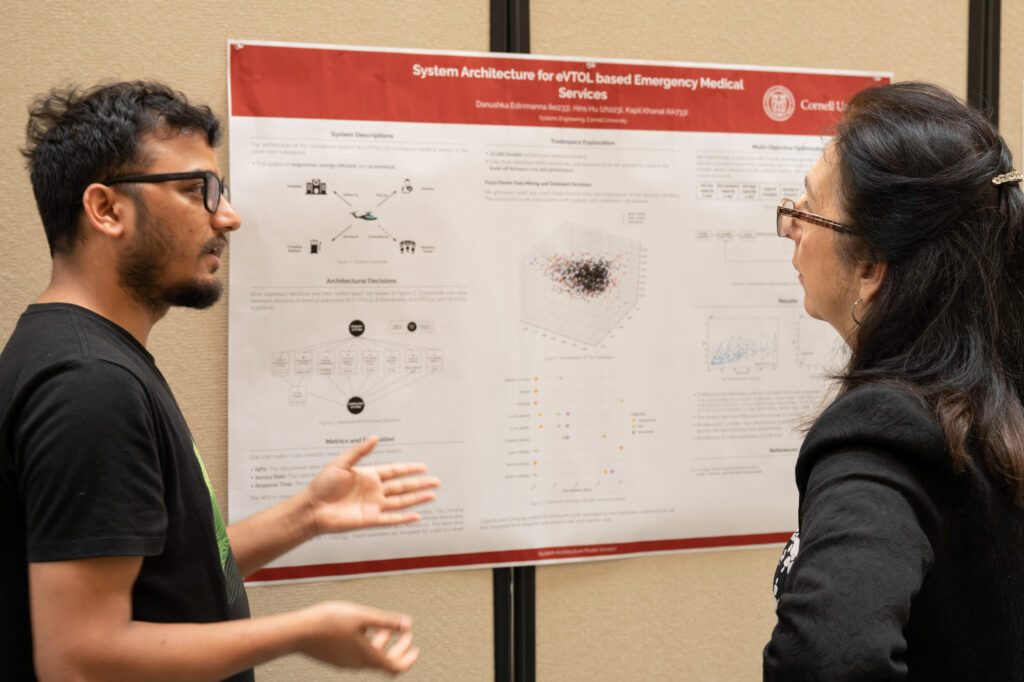The Cornell Ph.D. in Systems degree allows you to pursue methodologies and modeling techniques that are relevant for planning and executing multi-disciplinary solution efforts for design and operational problems in engineering, business, and the social sciences and combinations of these.
A Transdisciplinary Approach
The Systems Ph.D. is transdisciplinary, which allows our students to take advantage of a wide variety of research opportunities both within Cornell Engineering and across campus. The Systems Ph.D. does more than teach existing techniques — our students create innovative solutions for complex systems and define the state of the art.
Students enrolled in the Systems Ph.D. degree pursue research focused on planning, optimizing and executing multi-disciplinary solutions for design and operational problems in engineering, business, the social sciences, and combinations of these.
Starting with understanding the needs of the end consumer, as a Ph.D. student you’ll convert these needs into quantifiable requirements, and then design tools and techniques to devise possible solutions or investigate existing solutions within the parameters of the requirements. Finally, you’ll implement a solution that effectively serves the needs of the end consumer. There is flexibility of determining individualized curriculum in consultation with your advisor and special committee.
Career Opportunities
Graduates of the program will find employment in a variety of fields, including academia and public, private and governmental agencies specializing in energy, health care, defense, aerospace, information technology and policy making.
The applicable areas are endless because systems science and engineering are essential to tackle today’s complex global challenges. The employment prospects for the graduates of this program, both in academia and industry, are remarkably high as demand for systems experts far outweighs supply.


About the Special Committee
-
Selecting Your Committee Chair
A committee chair (thesis advisor) must be selected by each Ph.D. student before the end of the second semester (i.e., before the end of Academic Year One).
While this is a latest date, it is expected that most students will match with an advisor within their first semester.
The Graduate School requires that all doctoral students have a full Special Committee no later than the end of their third semester.
For complete information about committee requirements visit Cornell University Graduate School: Selecting and Changing a Special Committee.
-
Choosing Your Committee Members
You and your committee chair (thesis advisor) should begin thinking about your Special Committee at the beginning of your graduate study.
Your Special Committee will consists of a minimum of three faculty members who will directly supervise your graduate study and research.
Your committee chair (thesis advisor) represents the major field of Systems Engineering.
The other faculty members represent two minor fields. Students in Systems are strongly advised to develop interdisciplinary skills and thus are discouraged from having both of their minors fields in areas closely related to their undergraduate training or major advisors primary field.
Although your minor faculty member(s) can be from any field, you will want to select faculty who will contribute to or support your research goals in some way. We require that at least two of the members of your committee are qualified to read and understand the technical aspects of your dissertation.
To find the faculty members of any given field, visit Cornell University Graduate School: Fields of Study and select the desired field. All the faculty members in that field will be listed at the bottom of that page. To find all of the fields to which any given faculty member belongs, enter the faculty member’s name in the search bar, make sure “Filter by Faculty” is selected, and select “Go.” This will display all of the fields and concentrations that faculty member can represent.
-
The Power of the Special Committee
The faculty member who represents a particular subject/concentration on the committee determines the specific requirements for that student (e.g. coursework needed). The committee, as a whole, evaluates the student at the time of the “A” exam and “B” exam and determines whether you have met the appropriate standards for original research contributing to the knowledge base of the field (approving your dissertation).
The Graduate School requires that all doctoral students have a full special committee no later than the end of the third semester.
Students are encouraged to meet with their full committee at least once a year to ascertain that everyone is in agreement regarding the progress toward the degree. Committee members can be useful allies.
For more information about the special committee visit Cornell University Graduate School: Nominating Your Chair and Special Committee.
-
Interdisciplinary Expectations
Students in Systems are strongly advised to develop interdisciplinary skills and thus are discouraged from having both of their minors fields in areas closely related to their undergraduate training or in their major advisor’s primary field
-
Exceptions and Petitions
Exceptions to the above requirements must be approved by the director of graduate studies.
To request additional time please submit a General Petition Form. Failure to comply with the above requirement may result in a hold being placed on your registration by the Graduate School.
A Special Committee Selection and Change Form must be submitted to the Graduate School to establish a committee or change/add committee members.
Forms can be printed from Cornell University Graduate School: Forms. A copy of all forms must be given to the Systems Engineering graduate field assistant (systemseng@cornell.edu) before submitting them to the Graduate School.
